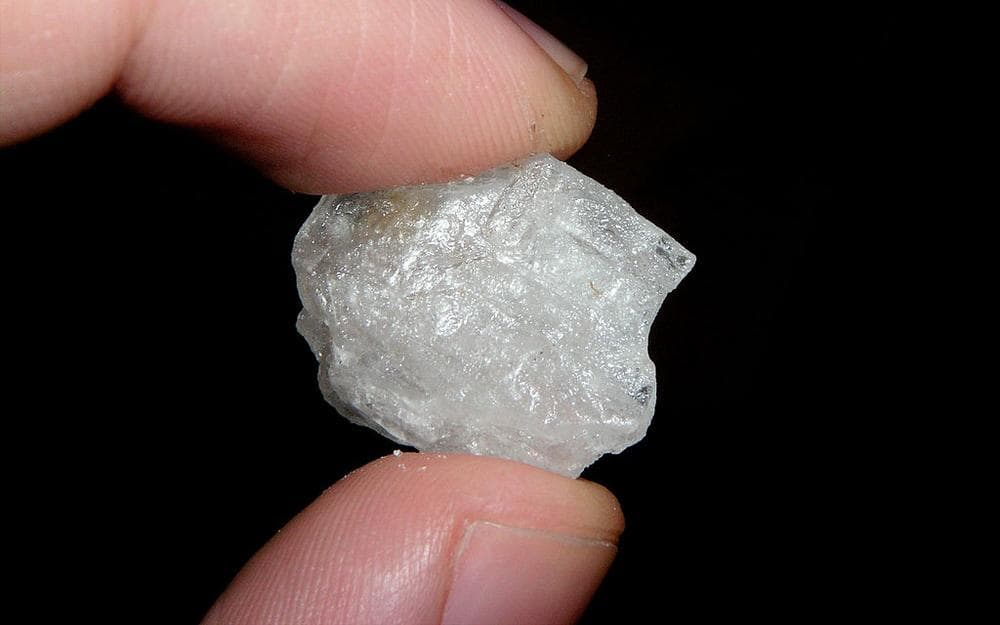Advertisement
Meth-Like Stimulant Found In 'Craze' Workout Powder; Production Stops

In medical research, "impact" usually refers to the number of times that an article or a journal is cited by others going forward. If your findings only ever find their way into, say, three sets of footnotes in other people's papers, you can be pretty sure your impact is minimal.
In journalism, however, when you're, say, applying for a Pulitzer prize, you need to show "impact" in the sense that your stories have led to significant change: The corrupt sheriff was ousted, or the systemic injustice corrected.

Dr. Pieter Cohen, a general internist at Cambridge Health Alliance who researches dietary supplements, has just crossed the line from the academic sort of impact to the journalistic: On Monday, he and colleagues published a paper warning that they had analyzed the popular pre-workout supplement Craze and found that it contained a little-studied methamphetamine-like substance. Now, USA Today reports: "Driven Sports, maker of the pre-workout supplement Craze, announced Tuesday that it has suspended all production and sales of the product in the wake of tests finding amphetamine-like ingredients."
In fact, Driven Sports writes on its Website that it stopped production "several months ago while it investigated the reports in the media regarding the safety of Craze" — though it also maintains that Craze is safe and its own testing has found no amphetamine or other controlled substances.
But would we have known that Craze production had been suspended if Dr. Cohen's study in the journal Drug Testing And Analysis had not appeared? We asked him for his main messages from the Craze tale, and he replied:
• Supplements are all assumed safe until proven otherwise by the FDA. But the FDA has no effective system to detect hazardous supplements.
• In this setting it’s concerning to find that more and more supplements, like Craze, that contain new, untested compounds. This can lead to serious health effects: The FDA is currently investigating whether a new ingredient in a weight loss supplement, aegeline, was responsible for one death and dozens of cases of severe hepatitis in Hawaii.
Advertisement
My translation: God knows what they put in those supplements. Use at your own risk.
I'd like to think we'd all be wise enough not to consume a supplement titled "Craze" anyway (and not to be surprised that it contains chemicals close to a dangerously addictive drug that turns people into toothless tweakers), but for anyone who needs further persuading to throw out those last remnants of old Craze, here's the abstract of Dr. Cohen's paper:
Pharmaceuticals and banned substances have been detected in hundreds of purportedly natural supplements. Recently, several athletes have been disqualified from competition after testing positive for the methamphetamine analog N,α-diethyl-phenylethylamine (N,α-DEPEA). Athletes have claimed they unknowingly consumed the banned stimulant in workout supplements. Three samples from different lot numbers of Craze, a workout supplement, were analyzed to detect the presence and concentration of N,α-DEPEA. Two labs independently identified N,α-DEPEA in the supplement using ultra high performance liquid chromatography (UHPLC) coupled to an LTQ Orbitrap XL mass spectrometer and UHPLC-quadruple-time-of-flight mass (Q-TOF) spectrometer, respectively. The identity of N,α-DEPEA was confirmed using nuclear magnetic resonance and reference standards. Manufacturer recommended servings were estimated to provide 21 to 35 mg of N,α-DEPEA. N,α-DEPEA has never been studied in humans. N,α-DEPEA is a methamphetamine analog; however, its stimulant, addictive and other adverse effects in humans are entirely unknown. Regulatory agencies should act expeditiously to warn consumers and remove N,α-DEPEA from all dietary supplements.
Readers, any supplements you particularly hope Dr. Cohen or other supplement watchdogs will examine soon?
